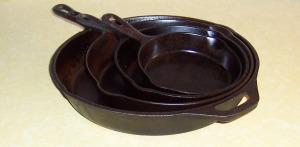Many times I write (or don’t write) what I think particular people may or may not want to hear. My wife, my mother, my daughter(s), my son – I write (or don’t write) for them.
What I end up with is not my voice, my opinions. How many times have I refrained from writing something, afraid someone would not approve? Too many. Too often. Of course I don’t want to purposefully hurt anyone with my words, but I wouldn’t do that anyway. If someone is hurt by my words I can’t help that. I have no control over others’ feelings.
I want to write without concern for how others will take it, without regard for how it might be received, judged, or critiqued, for the very reason that something I delete out of fear may benefit you. If not you, it might benefit somebody else.
So the next steps for me are about finding my voice, writing what’s in my heart without worrying about the audience. It is about writing and publishing what I write despite the voices in my head telling me that my writing is stupid, that nobody will want to read it, that nobody cares what I have to say.
Of course some readers will criticize my writing. Other readers will hate it. Some will resonate with it. Some will appreciate it.
But nobody will get the chance to love or hate my writing if I don’t write and publish it, which seems self-evident, but in truth is something I struggle with daily, trying to quell the voices of resistance in my head. It is something I’ve struggled with my entire life.
Either way, though, ultimately I’m writing for me. I don’t write for money or fame or recognition or to prove a point, I write because there are words in me that I don’t want to keep inside. There are stories and insights I want to share and if I don’t share them, there is a part of me that will always be discontent. A part that has always been discontent.
It is at this juncture that I remember I need a subject to write about. I can no longer do what I’ve too often done; pick up pen and paper and write with no purpose, just writing random crap, or spilling out my woes, trials, problems and complaints. Nobody wants to read that tripe. I have to choose a subject.
I don’t want to use lack of subject as an excuse either, though. The goal is to sit down and write. Just sit down and write. Every day. Subject or no subject. If I continue to do so the ideas will come. Won’t they?
No.
I knew the answer as soon as I typed the question.
So now what? Now I have to choose a subject. That’s the really, really hard part.
If you’re not a writer you don’t know how scary it is – the prospect of making a choice – of choosing a subject and beginning to write about it. I’m terrified. Of failure. Of success. Now what?
